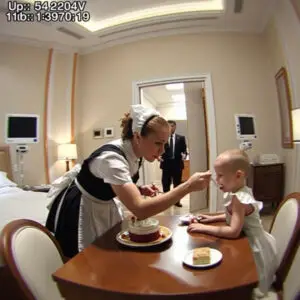At our first family dinner, she served everyone lasagna—except me. I got a bowl of lettuce. Then she smiled sweetly. “Such a pretty face. Shame you let your body ruin it.” I smiled back and ate my salad. But inside, something solidified. I wouldn’t fight her with rage—I’d fight with clarity. At the next dinner, I brought her a gift: a full-length mirror with a card that read, “Since you’re so focused on appearances, you should see your own.” Her laugh was brittle, but the flicker in her eyes told me it landed.
That moment started a quiet war—diet brochures “forgotten” in the guest bathroom, “jokes” about portion sizes. My husband brushed it off as “old-fashioned.” I finally realized I wasn’t just fighting her, but every voice that had ever shamed me. So, I started therapy—not a diet, not a cleanse. Therapy. And I changed. When she said, “That blouse is tight,” I replied, “Yes, I feel strong in it.”
When she whispered, “You’d be stunning if you lost 20 pounds,” I answered, “And you’d be kind if you dropped the commentary.” Then came the call: a tumor on her kidney. Fear replaced cruelty. “I thought I was preparing you,” she said softly. “But I only repeated what was done to me.”
Her surgery went well. She began to listen, to care, to try. Months later, she handed me a photo of herself in a sari. On the back: “Hold in your stomach. You look huge.” Sometimes the enemy isn’t a person—it’s an inheritance. And sometimes, love repairs what shame began.





